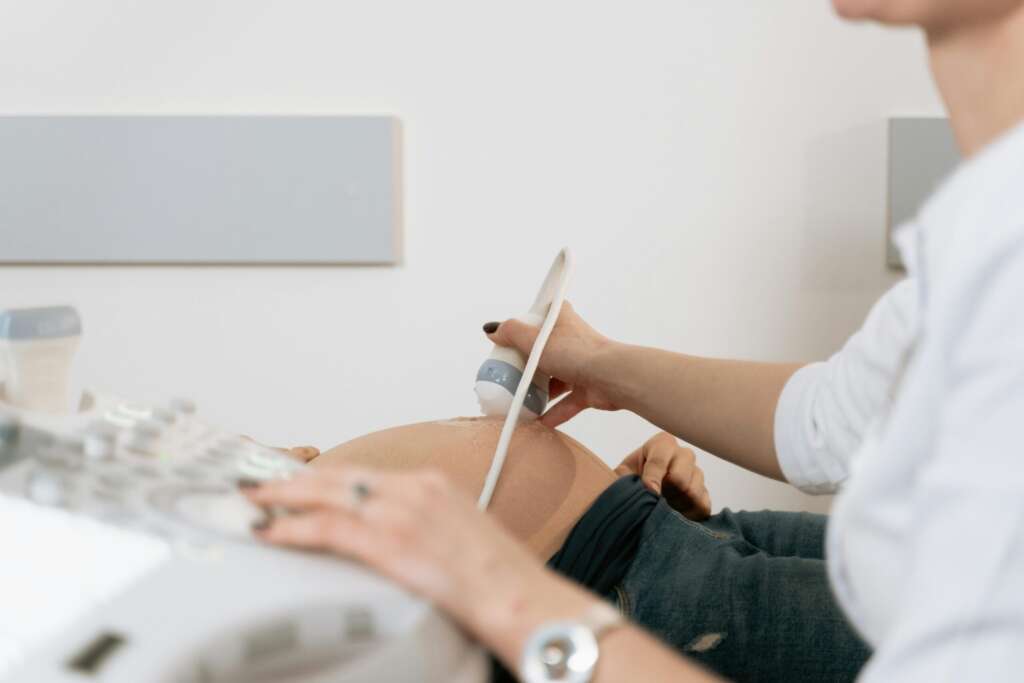Obstetrics

Dr. Wolny currently practices full scope obstetrics, both low and high-risk with the assistance of a Maternal Fetal Medicine physician, especially the high-risk pregnancies. Dr. Wolny provides services in prenatal care, prenatal screening and tests, labor and delivery, intrapartum management, vaginal delivery, operative vaginal delivery, cesarean section, and postpartum care. She is familiar with the most common causes of litigation in this field including shoulder dystocia, hypoxic ischemic encephalopathy, birth injury, and postpartum maternal complications such as maternal and fetal death.
Shoulder Dystocia
Shoulder dystocia is one of the most common litigated obstetrical complications. It is an obstetric emergency that occurs during vaginal delivery when one or both newborn shoulders become impacted behind the mother’s pubic bone after the head was delivered. The complication is unpredictable in many cases although has some predicable risks factors. Potential causes for litigation include brachial plexus injuries, hypoxic injury, fractures, and maternal injuries.
A common claim in lawsuits is that the healthcare provider missed risk factors (fetal macrosomia, maternal diabetes, obesity, or history of shoulder in prior deliveries), inadequate prenatal testing, or not offering cesarean section. Improper management during delivery, poor communication, and inadequate record-keeping is paramount to effective defense of a case. Medical experts play a pivotal role in shoulder dystocia cases basing their opinions on guidelines from the American College of Obstetrics and Gynecologists. While some cases might involve clear errors, some may hinge on nuanced disputes regarding foreseeability, causation, and adherence to standards of care.
Hypoxic-ischemic encephalopathy
(HIE)
HIE represents another very common cause of obstetric litigation. It arises when a newborn suffers brain injury due to oxygen deprivation and reduced blood flow at the time of birth. These cases often fall under medical malpractice claim and can overlap with shoulder dystocia. HIE can lead to cerebral palsy, developmental delays, intellectual disabilities, or seizures. Potential allegations in HIE related claim include untimely diagnosis of non-reassuring fetal tracing (Category III), delayed performance of vaginal delivery or cesarean section, mismanagement of high- risk pregnancies, and delayed interventions in response to signs of fetal distress. Expert witnesses are brought to into legal case to provide OBJECTIVE opinion whether standard of care was met, whether medical negligence contributed to the injury, and the extend of damages. Their analysis is based on thorough analysis and review of medical records, imaging studies, fetal monitoring records, and other pertinent medical documents. The analysis is based on experts’ clinical experience and the latest scientific evidence.
Maternal and Fetal Death
Maternal and fetal death represent a common cause of litigation. Plaintiffs frequently allege negligence of provider, hospital, or nurses in providing medical services consistent with the standard of care before, during the labor, or postpartum.
Potential fetal death causes which might lead to litigation include failure to adequately monitor fetal distress, mismanagement of high-risk conditions (preeclampsia, diabetes for example), delay in performing delivery (vaginal or cesarean section), etc. Maternal death causes that might lead to litigation those include postpartum hemorrhage, pre-eclampsia/eclampsia, amniotic fluid embolism, or sepsis. Review of medical records, imaging studies, fetal monitoring strips, and autopsy records constitute the basis for providing an objective expert opinion on breach of standard of care, causation, and potential damages. Wrongful death is a complex litigation that also involves other claims for loss of consortium, loss of income, and other expenses.
- Prenatal Care
- Prenatal Screening and Tests
- Labor and Delivery
- Intrapartum Management
- Vaginal Delivery
- Operative Vaginal Delivery and Cesarean Section
- Postpartum Care
